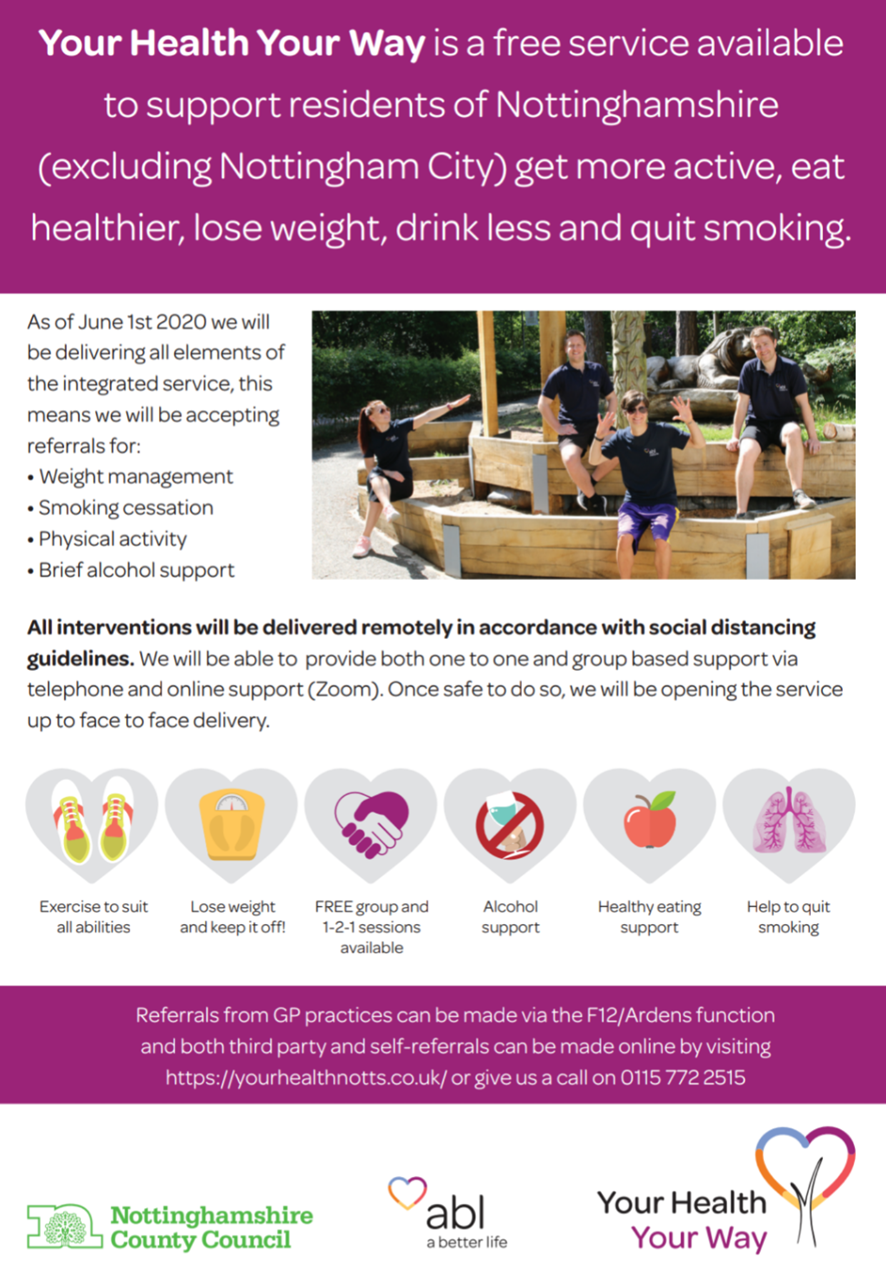High Blood Pressure
What is high blood pressure?
High blood pressure is when your average blood pressure is above 140/90.
If you have other health problems, such as heart disease, diabetes or stroke, we may aim for a lower blood pressure.
This helpful video by the British Heart Foundation, explains in more detail what high blood pressure, known as “hypertension”.
Who is at risk of high blood pressure?
Risks include being overweight, doing little or no exercise, alcohol, smoking, and if you have a family history.
What are the symptoms of high blood pressure?
Often, there are no symptoms of high blood pressure! Occasionally, you may experience dizziness, headache, nose bleeds, tiredness and changes to your vision.
How quickly should I act on a high blood pressure?
If your blood pressure is more than 180/120, or you feel unwell, please seek URGENT SAME DAY advice. If you experience any chest pain, shortness of breath, severe headache or weakness, please ring 999.
How do you diagnose high blood pressure?
We do not diagnose high blood pressure on a single one off reading, because it may not be a true reflection of your blood pressure.
We would usually make a diagnosis following a series of 7 day home blood pressure measurements. If the practice has requested this from you, please see the next section below.
Home blood pressure monitoring
If you do not have access to a blood pressure machine, we can loan you a machine. You will need to take 2 readings in the morning and 2 in the evening. Please leave 1 minute between each measurement. Please ensure you are seated upright, and feel comfortable.
Please record the blood pressure on the form (you can download a copy of the form here).
After 7 days, please return the loaned machine and blood pressure form, after which your doctor will review the readings and decide if any further action needs to be made. We would expect your doctor to review the readings in 1 week so please ensure you contact the practice to follow up.
What tests do I need?
If your doctor is concerned that your average blood pressure readings are too high, they will arrange a blood test, urine test, and heart test (called an ECG).
Who looks after my blood pressure?
The doctors and nurses at Torkard Hill will usually measure, monitor and treat your blood pressure. Once stable, we will offer you an annual check up, with our nursing team, who will measure your blood pressure, weight, height, and arrange a blood and urine test.
Rarely, if your blood pressure remains unstable despite treatments or any concern over rarer causes of high blood pressure, you may be referred to the “Hypertension Clinic” at one of our local hospitals.
Treatment for blood pressure
Lifestyle changes can help bring your blood pressure down. This includes cutting back on salt, eating fruit and vegetables, less red meat and fatty foods, and exercising regularly.
You may be offered medication to treat your blood pressure. The choice will depend on your age and if you take other medications; this is because some medications work better in certain groups. You may require more than one medication. Medication is usually taken every day, and for the long-term.

Lifestyle changes
There's help and support to make the necessary changes to improve your bood pressure.
This includes changing your diet, exercising, and stopping smoking.
Your Health Your Way is a free NHS service, to help you do this.
You can also read advice on the Patient.Info website:
https://patient.info/heart-health/high-blood-pressure-hypertension/lifestyle
Useful links
- Download a copy of the blood pressure monitoring form
- Hypertension and Diet: Food Fact Sheet by British Dietetic Association: https://www.bda.uk.com/resource/hypertension-diet.html
- NHS information about blood pressure and medication https://www.nhs.uk/conditions/high-blood-pressure-hypertension/
Page created: 13 July 2020